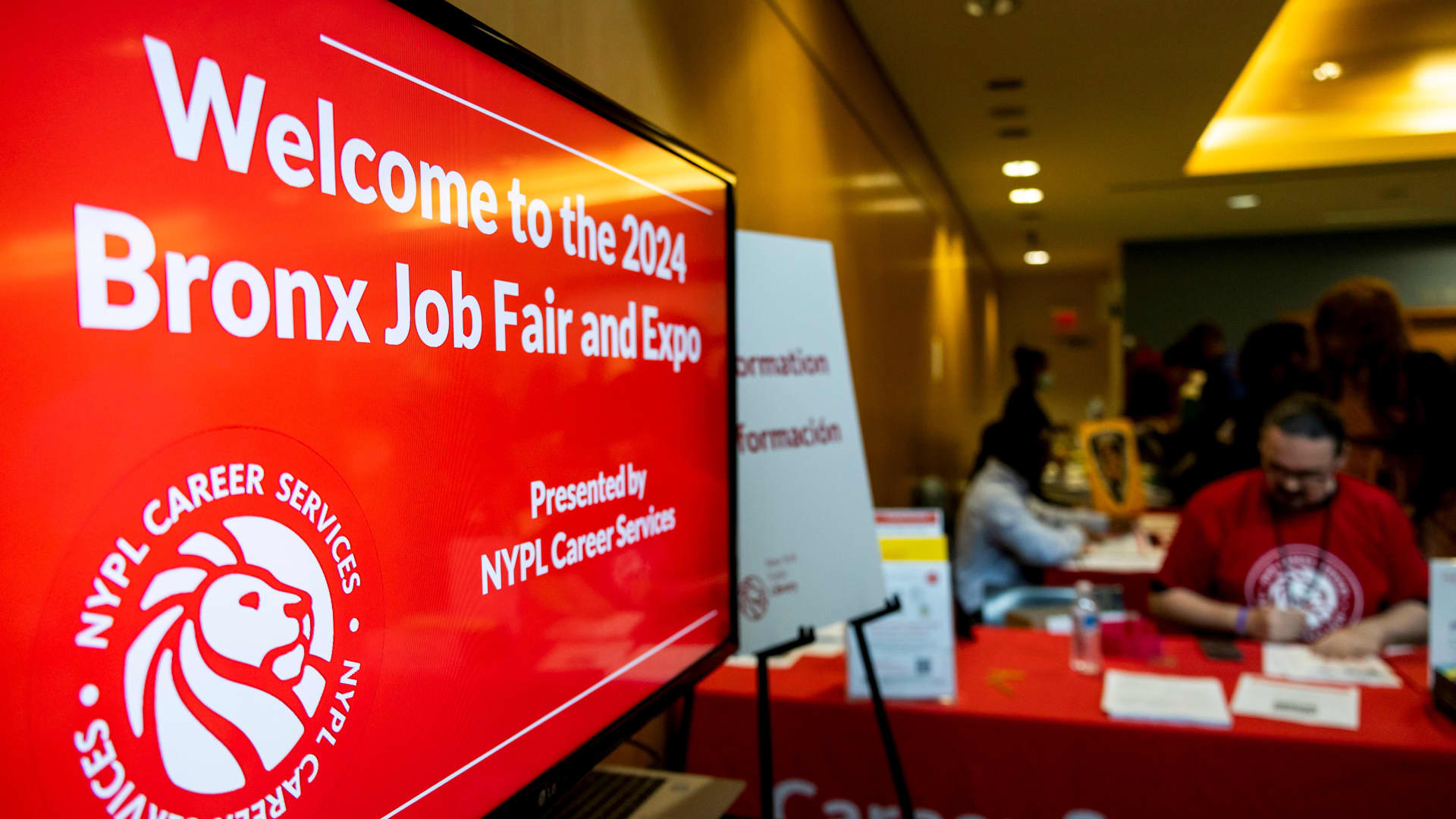The December jobs report is likely to provide only limited clarity on where the labor market is headed, with experts differing on how pronounced a slowdown there is in hiring.
From a consensus view, economists expect the Bureau of Labor Statistics on Friday morning to report a gain of 155,000 in nonfarm payrolls, a step down from the surprising 227,000 increase in November but about in keeping with the four-month average. The unemployment rate is forecast to hold steady at 4.2%.
However, the details of the report will be key, with some on Wall Street expecting that the number could come in a bit weaker, depending on how seasonal trends and other factors play out.
“We’ve seen a little bit of the softening and I think we’ll continue to see that, but it’s still a good [labor] market overall,” said Maureen Hoersten, chief operating officer and interim CEO at LaSalle Network, a Chicago-based staffing firm. “Things are leveling off a little bit. People are still a tad cautious, trying to figure out this new year and the new economic climate and political climate,” she said.
On average, the economy in 2024 added about 180,000 jobs a month through November, though the data has been volatile and somewhat confusing lately. Federal Reserve Governor Michelle Bowman complained Thursday that labor market reports “have become increasingly difficult to interpret” due to measurement challenges, which have included a surge of new workers and low response rates on surveys.
The December report also could be harder to judge depending on how the hiring of holiday workers affects the numbers.
Goldman Sachs, for one, estimates that payroll growth will come in at just 125,000, with the unemployment rate drifting up to 4.3%.
“Our forecast reflects a rebound in the labor force participation rate and middling household employment growth amid more challenging job-finding prospects,” the Wall Street bank said in a note. “We expect deceleration in job growth in non-retail sectors, particularly professional services and construction, to more than offset stronger retail hiring this month.”
Similarly, Citigroup is predicting just 120,000 new jobs and a 4.4% unemployment rate, which economist Andrew Hollenhorst wrote “should remind markets that the labor market has not stabilized and is continuing to soften. Risks are balanced to an even softer reading.”
However, Hoersten said she thinks that once some of the current volatile factors subside, companies will continue adding headcount, even if at a gradual rate. A BLS report earlier this week put job openings in November at a six-month high of just over 8 million, while layoffs were little changed and the quits rate, a measure of worker mobility, declined.
At the December meeting of the Federal Reserve, officials noted an “ongoing gradual easing in labor market” conditions, but saw “no signs of rapid deterioration,” according to minutes released Wednesday.
In a recent business survey, LaSalle Network found that 67% of small- and mid-size companies plan to increase headcount in 2025, down from 74% the year before. The survey also found that salary increases are expected to be smaller and hybrid working is likely to remain prevalent as a wedge to compete against larger companies for workers.
Average hourly earnings are expected to show a 0.3% increase in December and an annual rate of 4% from a year ago, little changed from November.
“Right now, I think things are just going to stay fairly flat overall, nothing drastic one way or the other,” Hoersten said. “But I do believe it’s still a good, strong market, and companies just needed to get past the little bit of a crazy climate over the past couple months and get back to the steady state.”

 Accounting1 week ago
Accounting1 week ago
 Economics1 week ago
Economics1 week ago
 Personal Finance1 week ago
Personal Finance1 week ago
 Accounting1 week ago
Accounting1 week ago
 Finance1 week ago
Finance1 week ago
 Economics1 week ago
Economics1 week ago
 Economics1 week ago
Economics1 week ago
 Economics1 week ago
Economics1 week ago






















